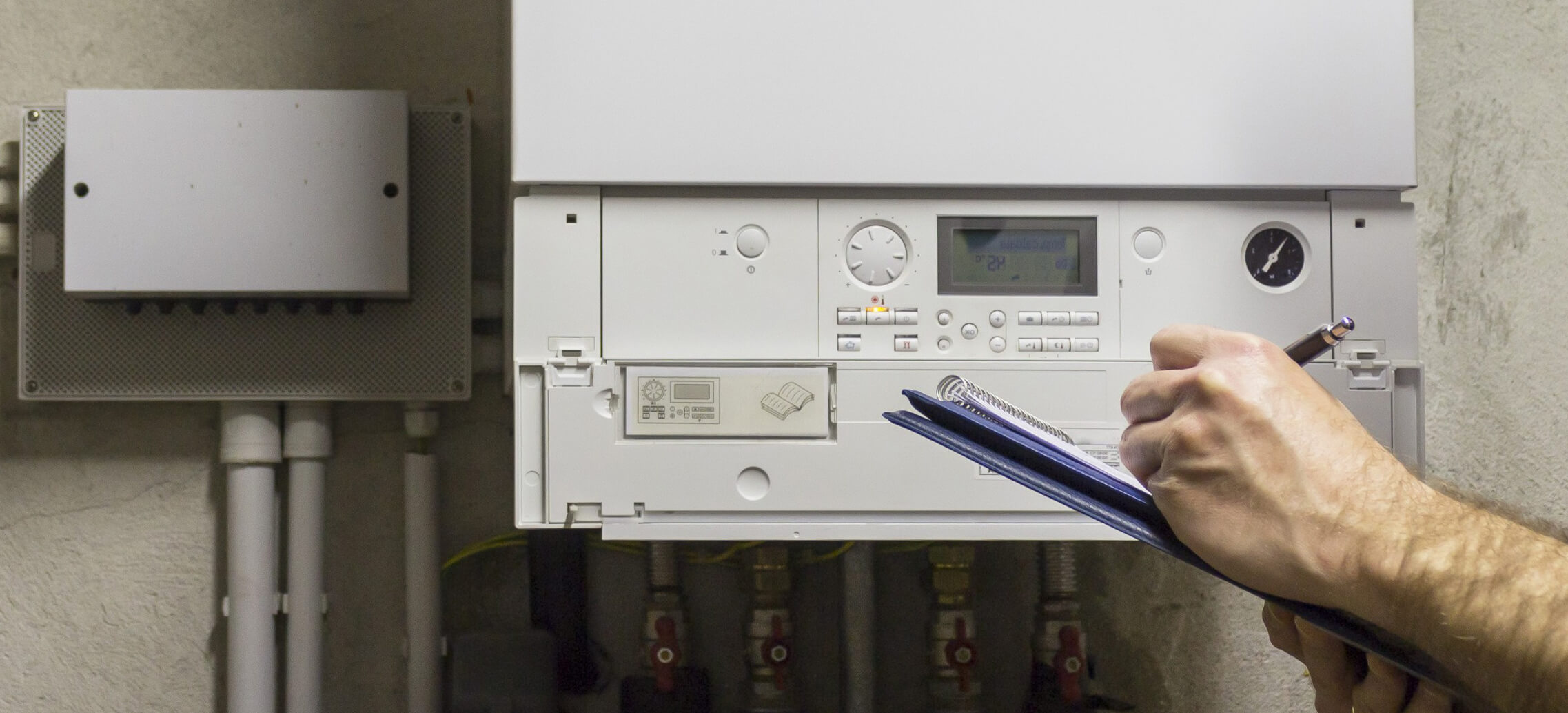What is a Condensing Boiler – Everything You Need to Know
Condensing boilers are becoming more and more popular around the world. They are slowly but surely replacing the conventional boiler options. According to estimations, around 16% of the global CO2 emissions per year come from non-condensing boilers. Quite the figure, right? It’s no wonder that many countries are imposing specific regulations for boiler usage. More and more of the consumers worldwide start to wonder what a condensing boiler is and how it works.
What is a condensing boiler?
A condensing boiler is a gas or oil-powered heating appliance that captures and reuses heat from exhaust gases to warm your home. This modern, energy-efficient system maximises heat output while minimising fuel waste, achieving 90–99% efficiency compared to just 60–70% for older conventional boilers.
As global awareness around climate change and energy consumption grows, more households are upgrading to eco-friendly boilers that not only reduce their carbon footprint but also lower monthly energy bills. In fact, outdated non-condensing boilers are estimated to contribute around 16% of global CO₂ emissions – a staggering figure that has prompted governments to introduce stricter regulations on boiler installations. Since 2015, the United Kingdom has implemented a series of condensing boiler regulations. Essentially, all new boilers installed in properties nowadays must be condensing ones.
How does a condensing boiler work
Condensing boilers operate by burning fuel, such as gas or oil, to heat water. The primary heat exchanger transfers this heat to your radiators or hot water system.
The key difference between a traditional and a condensing boiler lies in the secondary heat exchanger (also called the condensing unit), which captures residual heat from the exhaust gases. This process cools the gases and converts them into water vapour, which then condenses and is drained away. This mechanism allows condensing boilers to extract more heat from the same amount of fuel, improving ErP efficiency and lowering emissions.
Remember that you will need a Gas Safe certificate to have such appliances in your home.
Advantages of condensing boilers
Condensing boilers offer several clear benefits that make them a top choice for modern, energy-efficient home heating. Here’s why they stand out:
1. Environmentally friendly heating
Condensing boilers significantly reduce carbon dioxide (CO₂) emissions, making them a greener alternative to traditional heating systems. As the world becomes more aware of the environmental impact of urbanisation and fossil fuel consumption, switching to a low-carbon heating solution is a smart, responsible choice.
2. Energy efficient and cost-saving
Thanks to their advanced design and heat recovery technology, condensing boilers can achieve energy efficiencies of 90–97%. Most homeowners report savings of £200–£300 annually on energy bills compared to older, non-condensing systems. Over time, these savings make a significant difference.
3. Modern, smart technology
Because of their undeniable advantages, condensing boilers are becoming more popular. The demand is increasing, and there is now a variety of different brands, styles, and sizes to choose from. This makes it easier to select the most appropriate boiler for your household’s needs. Those boilers are made in line with the latest technology on the market.
4. Safe
Condensing boilers are perfectly sealed for heat insulation and capture air directly from the outside of the room they are placed in, eliminating the risk of anything being sucked into the boiler. There is also no risk of getting in contact with toxic substances, as the condensed liquid is disposed of via a pipe connected to the drainage system.
What are the disadvantages of a condensing boiler?
While condensing boilers offer many benefits, there are a few potential drawbacks to be aware of:
1. Vulnerability to freezing
The condensate pipe, which carries wastewater outside the home, can freeze in extremely cold weather. This may cause the boiler to temporarily shut down. Fortunately, this issue can often be avoided by proper insulation of external pipes or choosing a model with built-in frost protection
2. Corrosion risk
Because condensing boilers produce acidic condensates, there is a slight risk of internal corrosion over time. However, modern units are built with corrosion-resistant materials, and regular boiler servicing significantly reduces this risk.
3. Slightly higher upfront or maintenance costs.
Condensing boilers may cost more upfront than traditional systems and are slightly more complex to maintain. However, as technology advances and availability increases, maintenance costs continue to decrease. Most importantly, the substantial energy savings over time typically far exceed the initial investment, making condensing boilers the more cost-effective choice overall.
Despite these minor issues, most experts agree that the benefits of condensing boilers far outweigh the disadvantages, especially when considering efficiency, safety, and environmental impact. With proper installation and maintenance, they are a smart long-term investment.”
Condensing boiler cost in the UK
The cost of a new condensing boiler typically ranges between £400 and £1,600, depending on brand, size and type (combi/system/regular).
You can get a package deal and hire a company that will be able to both supply the new boiler and install it. A reliable service provider can send a Gas Safe-registered engineer to take care of your boiler installation in London. The cost of the fitting service depends on the complexity of the task.
Condensing boiler vs combi
So, what is the difference between a condensing boiler and a combi boiler? Combi boilers combine water heating with a central heating system. They are small and compact, occupying less space in your home. Combi boilers could also be condensing ones if you add a Flue Gas Heat Recovery System (FGHRS). It uses the heat inside the waste flue, coming from the burning of gas in your heater. The heat is then used to warm the cold water in your boiler. The process lowers the amount of energy needed, so FGHRS could make all gas combi boilers up to 99% more efficient.
How long does a condensing boiler last?
On average, a condensing boiler lasts between 10 and 15 years with proper care. However, several factors influence the actual lifespan:
- Boiler quality and brand – premium models from trusted manufacturers (e.g., Worcester Bosch, Vaillant, Ideal) may be more expensive upfront, but typically last longer, perform better, and come with longer warranties.
- Frequency of service – annual maintenance by a Gas Safe-registered engineer helps catch issues early and keep the system running efficiently.
- Water quality and system cleanliness – over time, sludge or limescale can damage internal parts. Installing a magnetic filter or water softener can extend the boiler’s lifespan.
- Usage habits – a boiler that’s oversized or overworked will wear out faster than one properly matched to the home’s heating needs.
How to extend your boiler lifespan
Essential Maintenance Steps:
- Schedule annual professional servicing – Regular inspections catch problems early and ensure optimal performance.
- Add corrosion inhibitor chemicals – These protect your system’s internal components from rust and mineral buildup.
- Monitor boiler pressure regularly – Check your pressure gauge monthly and maintain levels within the recommended range.
- Address issues immediately – Don’t ignore leaks, error codes, or unusual noises. Early intervention prevents costly repairs.
When it’s time to replace
Even with proper maintenance, boilers eventually reach the end of their useful life. Consider replacement if your boiler:
- Requires frequent repairs
- Struggles to heat your space effectively
- Causes energy bills to spike significantly”
Takeaways
Condensing boilers are the future. Their most essential benefits are:
- Energy-efficient and safe
- Cost-effective
- Reduced carbon footprint
- Modern and up-to-date with the latest technology in the industry
Now is an excellent time to consider replacing your old boiler with a condensing one, especially if it is no longer functioning properly or if it is hurting your budget. It’s best if you hire a professional, who will be able to check your property layout, size, etc. and advise you about the most appropriate boiler for your needs.
What is a Condensing Boiler – Everything You Need to Know
Need help? Hire the London Property Service experts today by giving us a call on 020 3078 5920.





